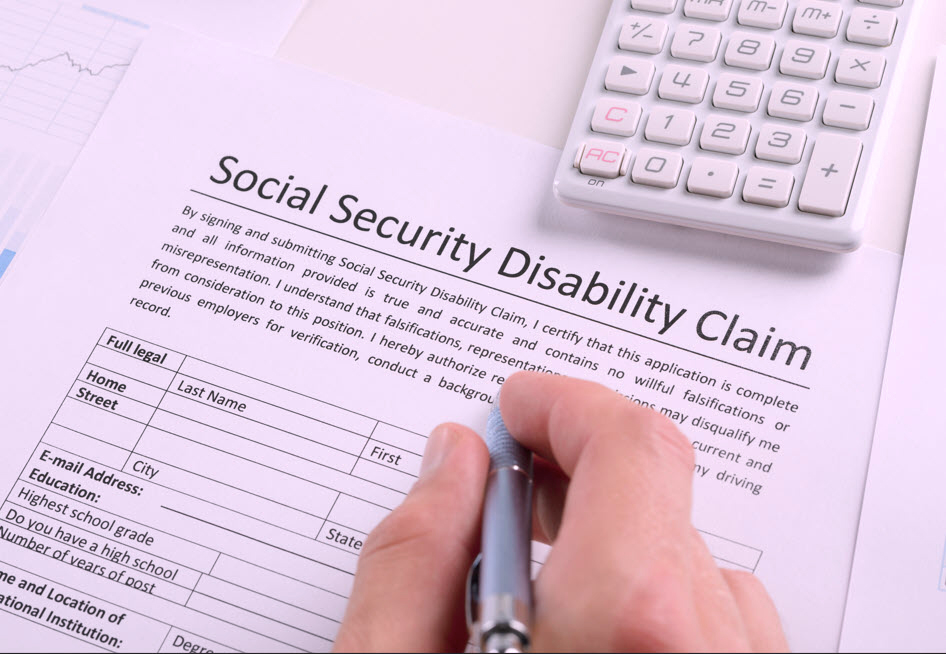How to win a social security disability federal court appeal – Navigating the Social Security Disability (SSD) system can be a daunting process, especially when facing a denial of benefits. While the initial denial can be discouraging, remember that appealing the decision is possible. This article delves into the intricacies of winning a federal court appeal for SSD, providing a roadmap for those seeking justice.
Appealing an SSD denial involves a multi-step process, beginning with an initial reconsideration by the Social Security Administration. If this appeal is unsuccessful, the case moves to an Administrative Law Judge (ALJ) hearing. Further appeals can be made to the Appeals Council and ultimately to federal court. Each stage presents unique opportunities to build a compelling case, supported by strong medical evidence and legal arguments.
Understanding the Appeal Process

Appealing a denial of Social Security Disability (SSD) benefits can be a complex process. It involves navigating multiple stages, each with its own deadlines and requirements. Understanding the appeal process is crucial for maximizing your chances of success.
The Appeal Process
The Social Security Administration (SSA) provides several opportunities to appeal a denial of SSD benefits. The appeal process involves a series of steps, each with its own specific deadlines. Here is a breakdown of the different levels of appeal:
- Initial Denial: The first step is to receive an initial denial of your SSD benefits application. You will receive a letter from the SSA explaining the reason for the denial. You have 60 days from the date of this letter to file an appeal.
- Reconsideration: If you appeal the initial denial, the SSA will review your case again. This is called reconsideration. The SSA will look at the evidence you submitted and may request additional information. You have 60 days from the date of the reconsideration denial to file another appeal.
- Administrative Law Judge (ALJ) Hearing: If your case is denied at the reconsideration level, you can request a hearing before an ALJ. At the hearing, you will have the opportunity to present your case in person, with the assistance of a lawyer or representative. The ALJ will review your medical records, your work history, and any other relevant information. The ALJ will then make a decision about your eligibility for SSD benefits.
You have 60 days from the date of the ALJ’s decision to file an appeal.
- Appeals Council Review: If the ALJ denies your claim, you can appeal to the Appeals Council. The Appeals Council is the final level of appeal within the SSA. The Appeals Council will review your case to determine if there is good cause to overturn the ALJ’s decision. You have 60 days from the date of the ALJ’s decision to file an appeal.
- Federal Court Appeal: If the Appeals Council denies your appeal, you can file a lawsuit in federal court. The federal court will review the decision of the SSA to determine if it was based on substantial evidence. You have 60 days from the date of the Appeals Council’s decision to file a lawsuit in federal court.
Deadlines for Filing Appeals, How to win a social security disability federal court appeal
It is crucial to be aware of the deadlines for filing appeals at each stage. Missing a deadline can result in your appeal being dismissed. The following table summarizes the deadlines for filing appeals:
| Appeal Stage | Deadline |
|---|---|
| Initial Denial | 60 days from the date of the denial letter |
| Reconsideration | 60 days from the date of the reconsideration denial |
| Administrative Law Judge (ALJ) Hearing | 60 days from the date of the ALJ’s decision |
| Appeals Council Review | 60 days from the date of the ALJ’s decision |
| Federal Court Appeal | 60 days from the date of the Appeals Council’s decision |
Important Note: These deadlines are general guidelines and may vary depending on the specific circumstances of your case. It is essential to consult with an attorney or other legal representative to ensure you understand the specific deadlines that apply to your situation.
Grounds for Appeal

Appealing a Social Security Disability (SSD) denial is a complex process, but understanding the potential grounds for appeal can significantly increase your chances of success. This section Artikels the common reasons for appealing SSD denials and the corresponding legal arguments you can use to support your case.
Incorrectly Assessed Medical Condition
A common reason for appealing an SSD denial is that the Social Security Administration (SSA) may have incorrectly assessed your medical condition. This can occur if the SSA:
- Failed to properly review your medical records.
- Misinterpreted your medical records or diagnoses.
- Did not consider all relevant medical evidence, such as medical opinions from treating physicians.
- Failed to adequately consider the severity of your impairments.
To support your appeal, you can argue that the SSA:
- Failed to properly evaluate the medical evidence.
- Misinterpreted the medical evidence.
- Failed to give proper weight to the opinions of your treating physicians.
- Did not adequately consider the impact of your impairments on your ability to work.
You should provide additional medical evidence to support your claim, such as:
- Medical records from your treating physicians.
- Opinions from specialists.
- Test results.
- Treatment summaries.
Gathering Evidence for Appeal

Winning a Social Security Disability appeal requires a strong case supported by compelling evidence. The Administrative Law Judge (ALJ) who reviews your appeal will base their decision on the evidence presented. Therefore, it is crucial to gather as much evidence as possible to support your claim of disability.
Medical Evidence
Medical evidence forms the cornerstone of your appeal. It provides objective documentation of your disability and its impact on your ability to work. This evidence should clearly demonstrate the severity of your condition and its limitations.
- Medical Records from Treating Physicians: These records contain detailed information about your diagnosis, treatment history, and functional limitations. They should include office visit notes, test results, and any reports from specialists.
- Medical Records from Specialists: If you have seen specialists for your condition, their records are essential. They provide expert opinions on the nature and severity of your disability.
- Hospital Records: Hospital records, including admission notes, discharge summaries, and operative reports, document any hospitalizations related to your disability.
Statements from Family Members, Friends, or Caregivers
These statements provide valuable insight into the impact of your disability on your daily life. They can corroborate your medical evidence and highlight limitations that may not be fully captured in medical records.
- Statements should be specific and detailed: They should describe how your disability affects your ability to perform daily activities, work, and participate in social interactions.
- Statements should be written clearly and concisely: Use plain language and avoid technical jargon.
- Statements should be signed and dated: This adds credibility to the statements.
Work History Records
Work history records demonstrate your past employment and any limitations you experienced while working. This evidence helps establish the impact of your disability on your ability to earn a living.
- Past employment records: These include pay stubs, tax forms, and employment verification letters.
- Documentation of limitations: This could include medical leave requests, accommodations provided by employers, or any limitations you experienced while working.
Vocational Expert Reports
Vocational experts are professionals who analyze job availability for individuals with specific limitations. Their reports can help demonstrate that there are no jobs available that you can perform given your disability.
- Vocational experts should have experience in the field: They should be familiar with the requirements of various jobs and the skills needed to perform them.
- Vocational expert reports should be based on your specific limitations: They should consider your age, education, work experience, and medical evidence.
Table of Evidence and How to Obtain It
| Type of Evidence | How to Obtain |
|---|---|
| Medical Records from Treating Physicians | Request copies of your medical records from your doctor’s office. |
| Medical Records from Specialists | Request copies of your medical records from the specialist’s office. |
| Hospital Records | Request copies of your hospital records from the hospital. |
| Statements from Family Members, Friends, or Caregivers | Ask family members, friends, or caregivers to write statements about the impact of your disability on your daily life. |
| Work History Records | Gather pay stubs, tax forms, employment verification letters, and any documentation of limitations you experienced while working. |
| Vocational Expert Reports | Consult with a vocational expert to obtain a report analyzing job availability for individuals with similar limitations. |
Winning a federal court appeal for SSD requires a comprehensive understanding of the legal framework, meticulous evidence gathering, and strategic legal representation. While the process can be complex, success is achievable with careful preparation and a firm grasp of the nuances involved. Remember, navigating this journey is not about facing the process alone. Seeking guidance from experienced legal professionals can significantly increase the chances of a favorable outcome.
User Queries: How To Win A Social Security Disability Federal Court Appeal
What are the common reasons for SSD denials?
Common reasons for SSD denials include inaccurate medical assessments, failure to consider all relevant medical evidence, misinterpretation of work restrictions, and incorrect application of Social Security Disability regulations.
What types of evidence can strengthen an appeal?
Evidence that strengthens an appeal includes medical records, statements from family members and friends, work history records, and vocational expert reports.
What happens if the federal court appeal is unsuccessful?
If the federal court appeal is unsuccessful, you may have the option of seeking further review by the Appeals Council or filing a new claim.






